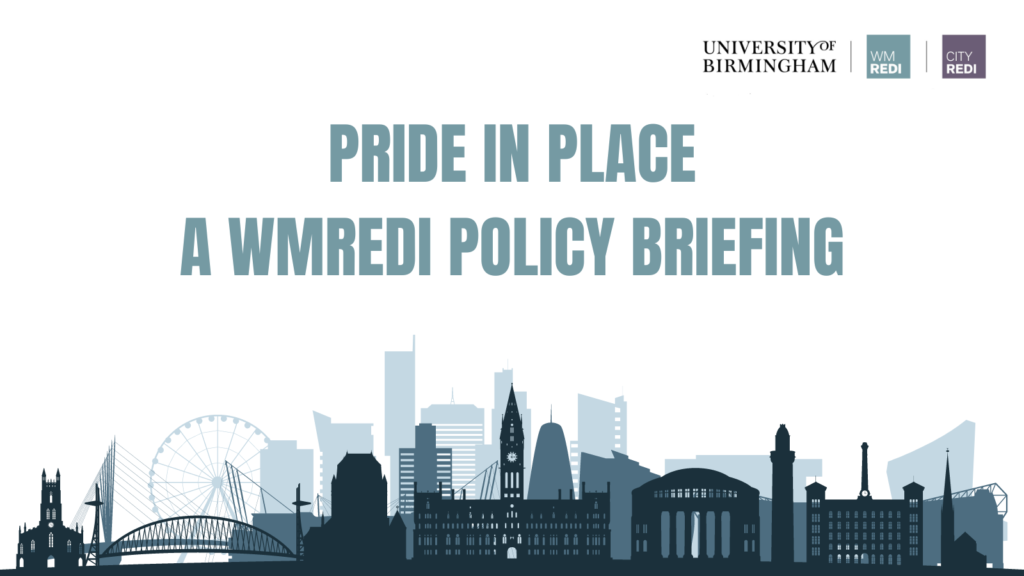
Pride in place is one of four overarching objectives in the Levelling Up White Paper as well as the least detailed of its twelve missions. This policy briefing by Rebecca Riley and Des McNulty explores this objective from the perspective of the role universities could play.
The underlying argument of the pride in place mission is that a combination of community demoralisation and the lack of effective leadership is the root cause of places being ‘left behind’. Yet despite the importance of harnessing community involvement and consent if places are to move forward, accessing the way people feel in and about place has been neglected in the formulation of place-based policies and decision-making.
Policy
Policy on place has treated it almost exclusively as a geographic location where boundaries can be mapped, data can be collected, economic trajectories can be explored, and policies enacted. In the academic literature, there has been extensive work on gaps between deprived neighbourhoods and other parts of large cities and on the trajectory of cities and regions but much less emphasis on peripheral or remote towns, reflecting a lack of policy focus on the fate of these places now labelled ‘left behind’.
Pride and Place
Linking pride with place requires taking into consideration the importance of social fabric, lived experiences and how people feel in and about places (Madgin 2022). The richness of people’s relationships with their places has been explored through literature, film, and television programmes such as Sherwood and Happy Valley, depicting the complexity of emotions, experiences, meanings and memories. These and other narratives are important in understanding places, not least because identities are bound up in our stories about ourselves and about those places we feel we belong to. Focusing on narratives allows us to add qualitative insights to quantitative data in such a way as to gain a holistic view of the place that joins up across different domains of policy and our lives.
Pride in place as a thematic policy area described in our recommendations in this paper is essential to developing local places. Decisions about the future of places should be taken in consultation with and involve the people the place serves.
Austerity has impacted detrimentally on services and assets at a place level. To develop greater resilience and create growing, thriving communities, local people need a greater say and more control. We also need partners to come together to improve the social fabric of places and to collaborate on building trust as well as taking forward projects. In left behind places, there is a need for consistent, long-term investment in regeneration and renewal programmes which should include the protection of, and investment in, local cultural, heritage, and sports assets. Where investment is based on a strategic approach to placemaking with the active involvement of local communities it is more likely to be both successful and sustainable.
Universities and Region Forum
The analysis and recommendations in this briefing – which come from a discussion at a workshop held in February 2023 by the Universities and Regions Forum at the University of Birmingham – are intended to clarify what is needed to take forward the delivery of levelling up commitments. They build on previous City-REDI / WMREDI research, as well as participants’ insights from working for and providing advice to local and central government in England and the national governments in Wales and Scotland. The authors are very grateful to the speakers and the participants for their input to the workshop and accept full responsibility for any errors of interpretation or fact.
Find out more about the work of the University and Regions forum
This blog was written by Rebecca Riley, Associate Professor for Enterprise, Engagement and Impact, City-REDI / WMREDI, University of Birmingham.
Disclaimer:
The views expressed in this analysis post are those of the authors and not necessarily those of City-REDI or the University of Birmingham.
